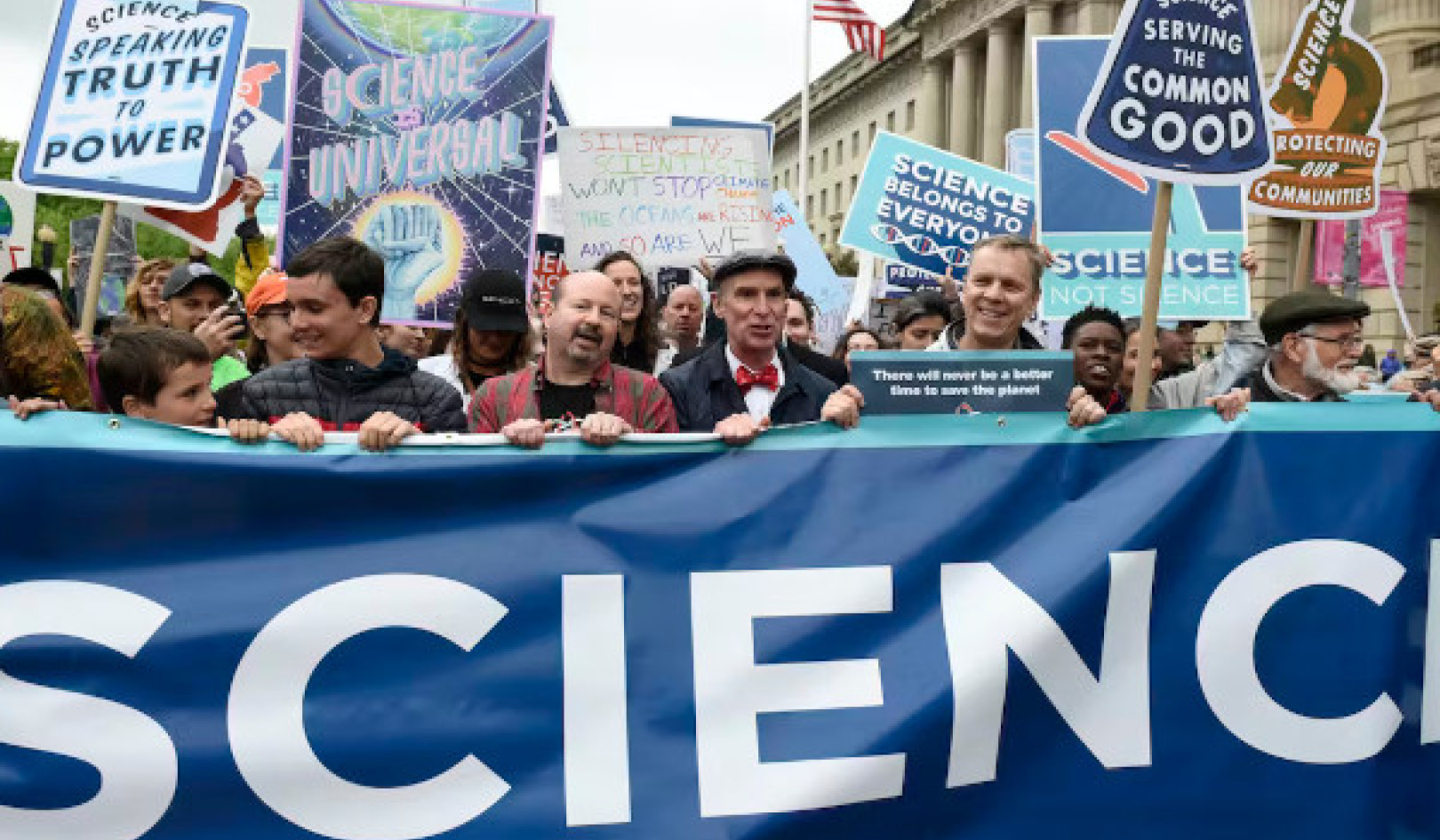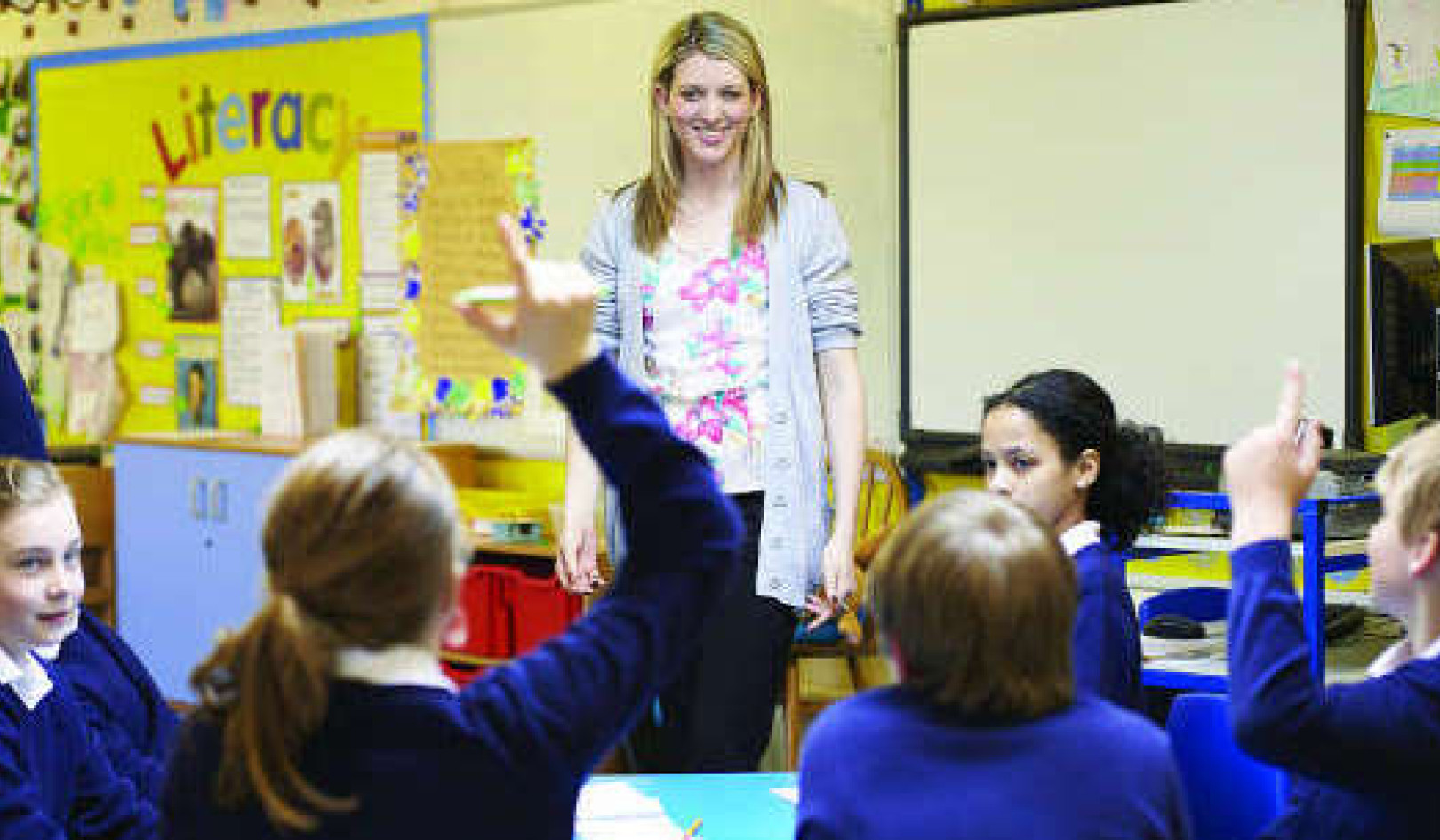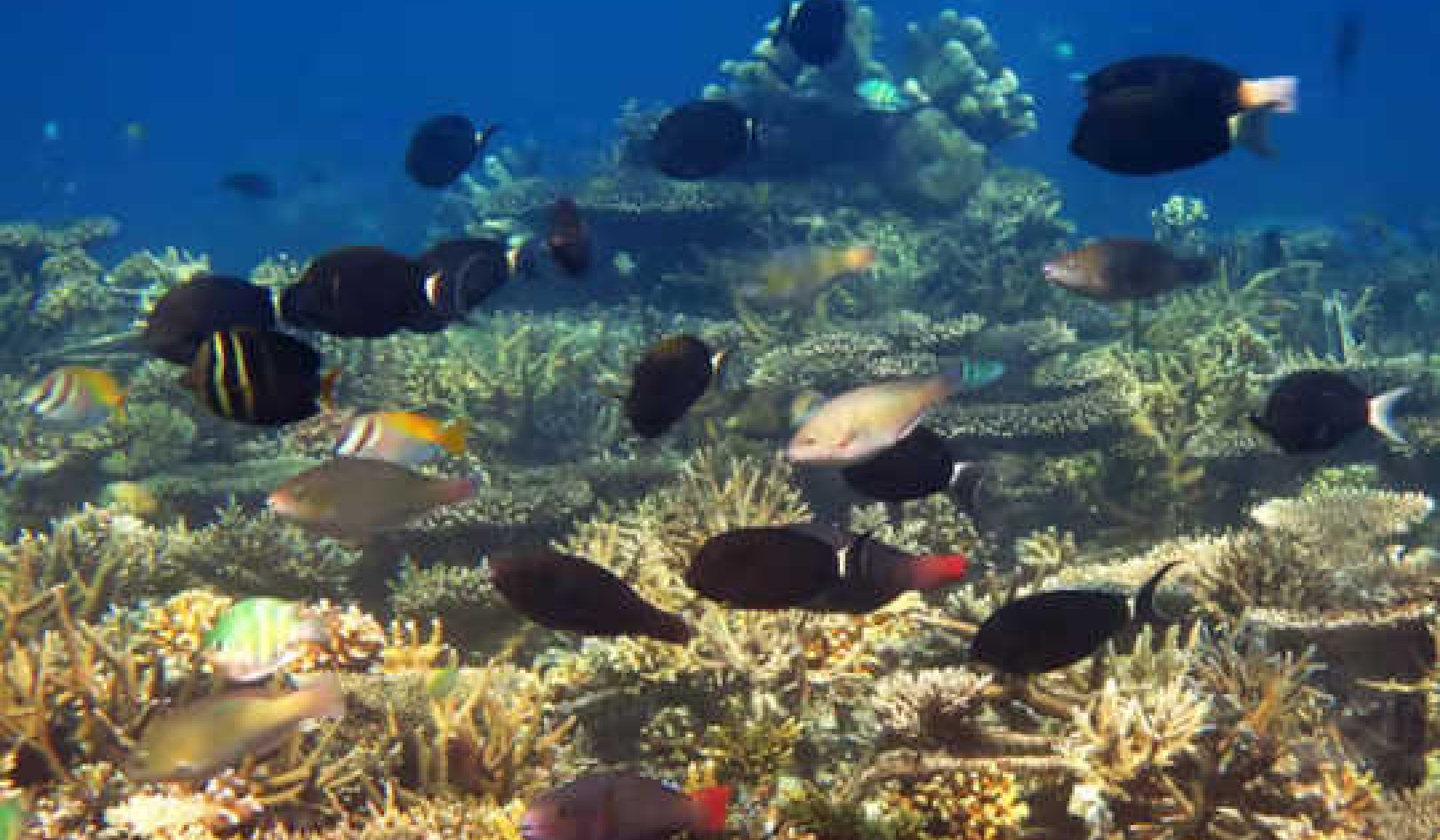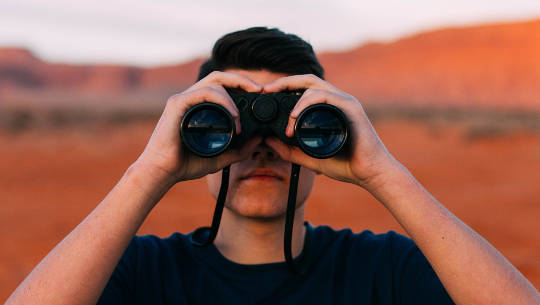
Image by Free-Photos
Lack of personal meaning and fulfillment is endemic to contemporary Western and Westernized societies. Why are depression, anxiety, and suicide increasingly common? Social analysts point to the stresses and strains inherent in modern life. But I believe the cause has more to do with what we bring - or don't bring - to life than with what we encounter in it.
My observations of human nature suggest that, other than socioeconomic oppression, the primary cause of individual distress is pervasive failure in human development (in the first three life stages) as found in, and caused by, contemporary egocentric society. The good news is that, once we understand this, we can begin to make the changes that lead to a positive future.
In the 1960s and 1970s, American society began making some of these cultural changes, as seen in the human potential movement and the consciousness revolution, both of which emphasized achieving nonordinary states through spiritual paths, humanistic and transpersonal psychology, music, art, entheogens, and social and political consciousness-raising. By themselves, these movements did not bring about a lasting or sufficient cultural shift.
Humanity's Sacred Wound
For billions of years, billions of creatures
have made a home on this jeweled planet
of water and stone. Wild love affairs --
Sun and Earth; fungi and algae; bacteria
and mitochondria -- preceded and spawned us,
our ancestral lineage recorded in the original eyes
of trilobites, in undulating muscle of jellyfish,
in ancient skeletal minerals sketched first
in the dark heart of stars.
Peering billions of years backwards in time,
we probe deep space and cosmogenesis,
decipher the unfurling story of life,
yet barely perceive the future hurtling
toward us, even as it's shaped
by our ambitious grasping hands and filled
with the stuff of human imagination -
however impoverished or vast.
Billions of creatures already know
their perfect place in the cosmic dance -
their specific genius expressed in relation
to nectar or coral reef, sequoia or hawk.
Millions of unlettered species already answer
questions we have barely begun to ask -
the oldest mystery school apparent in ones
who commune without cults, communicate
without language, migrate without combustion,
or - without brains or hands - couple with the Sun,
birthing energy from endlessly streaming photons.
What must they think of us - hungry ghosts,
hooked up to plasma TV, gathering faraway food
in packages, drinking from bottles of plastic,
razing forests for scented tissue and catalogues,
slicing our own flesh for pleasure or perfection,
pouring poison into the faultless bodies of children,
loading the tender arms of young men and women
with bombs and guns, exploding their minds
with the dismembered bodies of their own kind
before they know how to wallow with a lover
in wildflowers, beneath the holy Moon
and burning eyes of the gods, before they know
what genius smolders in them, awaiting fire,
before they know how to pluck a columbine
and offer cool nectar to the lover's tongue?
This is the way it's always been:
Billions of creatures co-arising, fading in and out
of the irreversible cosmic symphony. Do they regret
living as they must, cued to primal harmonics
of tide and storm, phytoplankton
and oak, lion and vole?
And what of us?
In the last green flash of consciousness,
before we are swallowed by the great night sea,
will we wonder if we have left a wake of ruin
or of celebration - an offering
of reciprocal magnitude
to the billowing imagination
and wild cosmic womb
from which we first emerged
as spark, as seed,
as a fragile embryo
of possibility?
- Geneen Marie Haugen, "Questions For Creatures With Forward-Seeing Imagination (for Thomas Berry)"
Humanity's Innate Vulnerability & Sacred Wound
Humanity as a whole has an innate vulnerability, a "sacred wound," and this vulnerability arises from our uniquely human mode of consciousness. This wound predisposes us to getting lost, both individually and collectively, failing to flower, and getting stuck. Sometimes it leads some of us to engage in truly deranged conduct, like "slicing our own flesh for pleasure or perfection" or "loading the tender arms of young men and women/with bombs and guns," as poet Geneen Marie Haugen writes, or, ultimately, destroying our biosphere.
Our human mode of consciousness is self-reflexive, which is to say that we know that we know. In other words, there's a small part of our consciousness, the ego, that is aware of itself as being aware. This confers a tremendous behavioral advantage but also a potentially fatal liability.
Although the ego knows that it knows, there is a whole universe of things that it does not know (especially before maturity), things that the larger, nonegoic portion of the human psyche does know and that are necessary for its own survival. These are things like how to keep a heart beating and how to be a healthy member of the more-than-human community -- how to make "a home on this jeweled planet/of water and stone."
The immature (early-adolescent) ego is capable of making conscious choices that are, in the long run, inadvertently ecocidal and therefore suicidal -- for example, "gathering faraway food in packages, drinking from bottles of plastic, razing forests for scented tissue and catalogues." A mature ego, in contrast, learns how much it does not know and how much it depends on sources of knowledge and wisdom that come from outside its realm, namely from the deep imagination, the Mystery, myth, nonordinary states of consciousness, archetypes, dreams, vision, ritual, nature, and elsewhere. A society with few genuine adults is racing blind and hell-bent toward a cliff.
Yet, just as is the case with our individual wounds, there is also an inestimable benefit that comes with our species' collective wound, a boon made possible by our distinctive human mode of consciousness. Geneen suggests that this is the gift of our "forward-seeing imagination." Coupled with our opposable thumbs and our uniquely human symbolic language, our forward-seeing imagination grants us the capability to create a viable future, not only for ourselves, but also for all Earthly creatures. In the twenty-first century, this capacity has become a necessity for survival.
Others say that the gift of our collective wound is the ability to consciously rejoice in the grandeur of the universe, a capacity that might have everything to do with our collective human destiny. The conscious celebration of the universe might be "an offering of reciprocal magnitude to the billowing imagination and wild cosmic womb from which we first emerged as spark, as seed, as a fragile embryo of possibility."
By recovering and reclaiming the power of our human deep imagination and our capacity to celebrate the universe, we render sacred our species' wound. We become Homo imaginens.
Circle and Arc Revisited
A more evolved human or society is not necessarily a more mature human or society - and vice versa. It's possible, for example, that the human species has been evolving over the past five thousand years, while at the same time most individual humans and societies have become increasingly immature. If this is true, then we have fallen further and further behind our potential, and yet our potential has grown despite the fact that we have not.
The evolution of our species - of anything, actually - is an arc, a one-way, nonrepeating trajectory, while the maturation of individuals within that species takes the form of a circle, an ever-renewing cycle. The circular pattern, however, is only one frame in a long evolutionary unfolding of circular patterns of human maturation, each frame lasting perhaps several thousand years or more.
I suspect that individual development (the circle) and species evolution (the arc) are essentially independent processes. The evolution of our species does not force individuals to mature psychospiritually, and individual maturation, in general, does not cause our species to evolve. But, in our time, if we do not mature as individuals (and consequently as societies), the entire arc of human evolution might soon come to an end. We are in danger of extinction - along with the extinction we have already wrought upon thousands of other species. The continuation of our human arc depends wholly on which circle - egocentric or soulcentric - we embrace.
Global Culture Change
Most everyone knows by now that global climate change, resulting from greenhouse-gas-induced global warming, is the most immediate threat and challenge we face at this time. But the primary difficulty in responding to this crisis is not technological. The knowledge and means already exist to reverse the still-escalating increases in greenhouse gas emissions. What we are lacking is the political and social will to do it. Reversing global warming requires a transformation in the values and lifestyles of all Western and Westernized societies, a shift from patho-adolescent consuming to mature, ecocentric communing. In this book, I've characterized this necessary change as a change from egocentric to soulcentric society.
This suggests that what underlies the crisis of global climate change is a deeper crisis we might call global culture change, which significantly predates our current climate crisis. While the latter began only two centuries ago, the former has been in process for about five thousand years. Global warming is the result of a millennia-old unfolding in which our human cultures have become increasingly egocentric and pathological - that is, increasingly alienated from nature and soul.
It seems reasonable to suggest that global culture change is our bigger and most immediate crisis - and opportunity. We must redesign all our major cultural institutions - education, governments, economies, and religions - to be in partnership with Earth systems. We must learn to raise all children and teens in alignment with nature and natural cycles. In particular, we must preserve the innocence of early childhood; we must refashion middle childhood as a time of wonder and free play in the natural world; we must assist young teens to be as authentic and creative as they can, with themselves and others. And we must engender full societal support for late teens (and young and middle-aged people, as necessary) as they explore and are transformed by the mysteries of nature and psyche. And we must do this for all people, in all socioeconomic classes, in all societies.
Is this possible? No. But let's not let that stop us...
Impossible Dreams
"There is no use trying," said Alice, "one can't believe impossible things."
"I dare say you haven't had much practice," said the Queen.
"When I was your age, I always did it for half an hour a day. Why, sometimes I've believed as many as six impossible things before breakfast."
-- quoted from Alice Through the Looking Glass by Lewis Carroll
As Albert Einstein notes, "No problem can be solved from the same level of consciousness that created it." When we're operating in our everyday, conundrum-generating mode, any real solution, should we encounter one, will seem impossible.
And yet genuine solutions exist and are often offered to us by our own psyches - often by the soul or the Muse. These solutions arise from a level of consciousness decidedly different from our ego's. Unless our own consciousness shifts, the soul's and Muse's suggestions will seem to us like impossible dreams and we'll dismiss them out of hand. But these solutions are impossible only from the perspective of the ego that has not yet awakened to a larger story and a more mysterious and numinous world than it has yet imagined. All dreams, visions, and revelations come to our conscious minds from a greater domain.
Humanity - in fact, the entire Earth community - currently exists in such dire circumstances that the most significant, viable, and potent solutions will seem like impossible dreams to most everyone (at first). But this is apparently the way it has always been in our universe.
At the greatest moments of transformations - what Thomas Berry calls "moments of grace" - the "impossible" happens. Like it did 2 billion years ago, when a certain bacterium (eukaryote) learned how to metabolize oxygen (that is, breathe) and how to reproduce by meiotic sex. Or perhaps like the big bang itself, some 14 billion years ago, creating something out of nothing. Or the appearance of an Earthling with conscious self-awareness. More generally, "wild love affairs," Geneen writes, "- Sun and Earth; fungi and algae; bacteria and mitochondria - preceded and spawned us....This is the way it's always been."
The idea of a soulcentric society living by an ecocentric sequence of developmental stages - to most people, this will seem an impossible dream. In the face of the mind-boggling casualties and depravities of contemporary Western societies, the Great Turning, too, might seem like an impossible dream, sometimes even to us impossible dreamers. Yet at this critical hour, any dream worth its salt ought to seem impossible to mainstream society and to the mainstream elements of our own minds. In George Bernard Shaw's play Back to Methuselah, the serpent says to Eve, "You see things; and you say ‘Why?' But I dream things that never were; and I say ‘Why not?'" Great wisdom, this, from the iconic underworld emissary - counsel that we ourselves would do well to heed in this hour of radical crisis and opportunity.
If you consider the data on such things as current wars, environmental destruction, and political-economic corruption, there seems to be little hope for humanity and most other members of the biosphere. But if, alternatively, you look at the fact of miracles - moments of grace - throughout the known history of the universe, it will dawn on you that there is and always has been an intelligence or imagination at work much greater than our conscious human minds.
Given that we cannot rule out a moment of grace acting through us in this century, we have no alternative but to proceed as if we ourselves in fact can make the difference - if, that is, enough of us uncover and enact our soulwork. It is vital that we each believe in and perform our impossible dreams, those with roots in the Mystery. In the end, I am quite certain, we will not be rescued by anything other than ourselves. If we are saved by a miracle, it will be the miracle of enough of us maturing into artists of cultural renaissance and imaginatively putting our shoulders to the wheel of the Great Turning.
Perhaps the process of catching up to our human potential will unfold in two steps. First, we must learn to engender a healthy adolescent society, one in which we take good care of our environment and each other - largely motivated by our fear of what would be our own human losses otherwise. A desire to save ourselves by becoming wiser consumers and more loving neighbors might be enough to stem the tide of destruction we are currently witnessing, even if this desire is anthropocentric. A transitional society such as this will be a major advance beyond what we have now, and I believe we can (and must) realize such a society in a matter of a few years. The most progressive contemporary trends suggest to me that we're well on our way - with tens of thousands of visionaries leading us on.
The second step will be to make the quantum leap from a healthy adolescent society to one that is truly mature (eco-soulcentric). A mature society desires a lot more than to save itself physically and economically. It seeks, for example, to save the rainforest for the rainforest's sake, not just because it mitigates global warming or because it might contain plants that could someday provide medicines for humans. In addition to protecting the habitat of all species, a mature society has a shared visionary awareness of where we're going as a people and a planet. As Thomas Berry says, such a society experiences the world not as a useful collection of objects but as a sacred communion of subjects. This requires a radical change in the values of our current consumer culture. Although it might take several generations to grow a mature society, I believe we are entirely ready to piece together its infrastructure. In this book, I have attempted to outline what such an infrastructure might look like. It all begins with the way we raise children and mentor teenagers.
My impossible dream is simply this: in this century, we each will learn to mature, live, and love in a way that enables us to succeed as Great Turners, someday regarded as honored ancestors in the "eyes of the future."
©2008. All Rights Reserved.
Reprinted with permission of New World Library, Novato, CA.
www.newworldlibrary.com or 800-972-6657 ext. 52.
Article Source
Nature & the Human Soul: Cultivating Wholeness and Community in a Fragmented World
by Bill Plotkin.
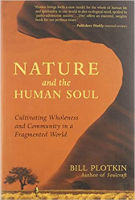 Addressing the pervasive longing for meaning and fulfillment in this time of crisis, Nature and the Human Soul introduces a visionary ecopsychology of human development that reveals how fully and creatively we can mature when soul and wild nature guide us. Depth psychologist and wilderness guide Bill Plotkin presents a model for a human life span rooted in the cycles and qualities of the natural world, a blueprint for individual development that ultimately yields a strategy for cultural transformation.
Addressing the pervasive longing for meaning and fulfillment in this time of crisis, Nature and the Human Soul introduces a visionary ecopsychology of human development that reveals how fully and creatively we can mature when soul and wild nature guide us. Depth psychologist and wilderness guide Bill Plotkin presents a model for a human life span rooted in the cycles and qualities of the natural world, a blueprint for individual development that ultimately yields a strategy for cultural transformation.
With evocative language and personal stories, including those of elders Thomas Berry and Joanna Macy, this book defines eight stages of human life - Innocent, Explorer, Thespian, Wanderer, Soul Apprentice, Artisan, Master, and Sage - and describes the challenges and benefits of each. Plotkin offers a way of progressing from our current egocentric, aggressively competitive, consumer society to an ecocentric, soul-based one that is sustainable, cooperative, and compassionate. At once a primer on human development and a manifesto for change, Nature and the Human Soul fashions a template for a more mature, fulfilling, and purposeful life - and a better world.
Info/Order this book. Also available as an Audiobook, Audio CD, and Kindle edition.
About the Author
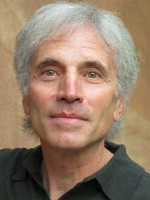
Bill Plotkin, Ph.D., is a depth psychologist, wilderness guide, and agent of cultural evolution. As founder of western Colorado’s Animas Valley Institute in 1981, he has guided thousands of seekers through nature-based initiatory passages, including a contemporary, Western adaptation of the pan-cultural vision fast. Previously, he has been a research psychologist (studying non-ordinary states of consciousness), professor of psychology, psychotherapist, rock musician, and whitewater river guide.
Bill is the author of Soulcraft: Crossing into the Mysteries of Nature and Psyche (an experiential guidebook), Nature and the Human Soul: Cultivating Wholeness and Community in a Fragmented World (a nature-based stage model of human development through the entire lifespan), Wild Mind: A Field Guide to the Human Psyche (an ecocentric map of the psyche — for healing, growing whole, and cultural transformation), and The Journey of Soul Initiation: A Field Guide for Visionaries, Evolutionaries, and Revolutionaries (an experiential guidebook for the descent to soul). He has a doctorate in psychology from the University of Colorado at Boulder.
Visit him online at http://www.animas.org.
























